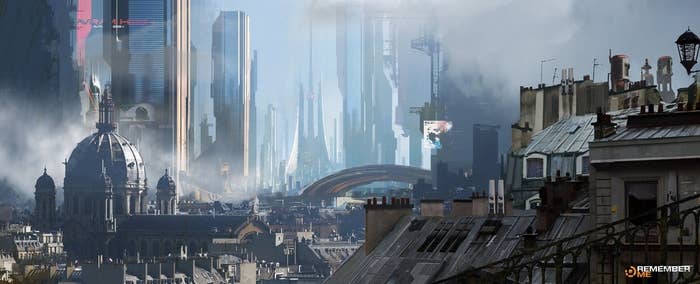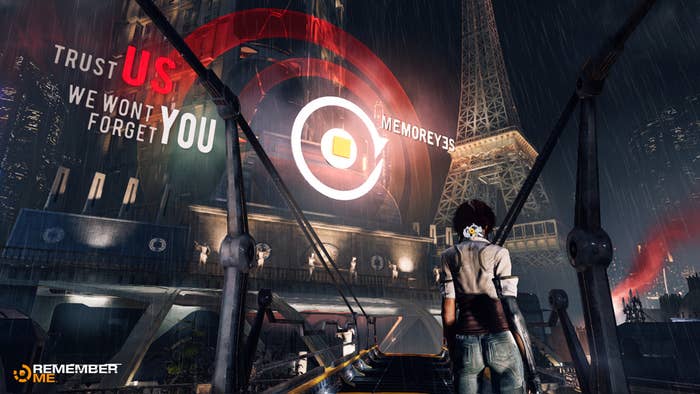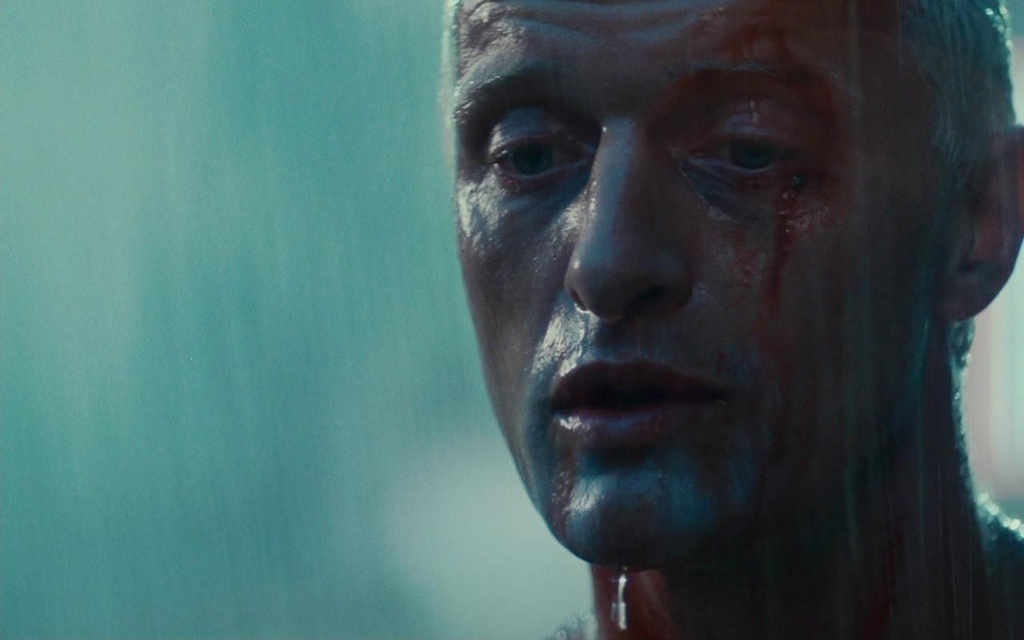
The Wikipedia category page for Cyberpunk Games contains 136 entries. That's more than such venerable genres as Tower Defense (48) and Psychological Horror (102), and nearly as many as the entire Stealth genre (158). It's a staggering number for a kind of game that isn't held together by a common style of play but by a common look, inspired by a movie (Blade Runner) and a novel(Neuromancer) that are three decades old. Like, no one would call themselves a fan of "cyberpunk games" specifically.
And yet there's no end in sight. The much-discussed PS4 launch title Watch Dogs puts players in the role of a master hacker in a near-future Chicago. There is a game coming out that is actually called Cyberpunk 2077, a title that has been accepted at face value but is actually incredibly strange. What if Rockstar had decided to call Red Dead Redemption "Western 1890"? And the new game from the developer Dontnod and publisher Capcom, Remember Me, is set in "Neo-Paris" at the end of the 21st century. It's out today.

In Remember Me you play as Nilin, a so-called "Memory Hunter", with the ability to steal and alter the memories of the residents of Neo-Paris in the year 2084 (that's 100 years after the year 1984, for those counting). You see, everyone in the City of Lights 2.0 wears a brain implant that allows them to save, share, and delete their memories. Which yes, sounds as awesome and safe as Vineing, but turns out to be a real social hazard in the hands of a totalitarian corporate state. Anyways it's Nilin's job, along with her fellow "errorists", to gunk up the works and break the state stranglehold on memory. Or something like that.
In a classic cyberpunk narrative like Blade Runner or Neuromancer, a jaded, hard-bitten protagonist with flexible moral standards confronts a technological conspiracy of great complexity, and succeeds—if at all—through some combination of cunning, smooth talk, elbow grease, and luck. While the classic cyberpunk hero, like his predecessor in film noir and detective fiction, may be able to manipulate the world in very specific, limited ways (say, hacking, or some other technological sophistication), in most ways he is extremely weak, if not totally powerless. Without getting too deep into the philosophical and structural underpinnings of noir and cyberpunk, it is crucial, even necessary for the hero to be physically weak; the cyberpunk hero needs to be swimming upstream for the oppositional, punk half of the equation to have any meaning at all.
The thing is, Nilin is a kung fu and parkour master.
This is what it looks like when Rick Deckard, the protagonist of Blade Runner, has to climb something:
This is what it looks like when Nilin has to climb something:
This is what it looks like when Neo tries to fight someone outside of the Matrix:
This is what it looks like when Nilin tries to fight someone:
Imagine The Terminator if Linda Hamilton could tae kwon do Arnold into submission. There's no threat; the technological menace feels weightless, puny. Why would I be worried about a dystopia if I can just beat it up until it behaves? Remember Me is far from the only "cyberpunk game" that totally whiffs on the cyberpunk spirit. Deus Ex is the series of games that is usually held up as the best example of cyberpunk in gaming, and while the games are truly excellent, they have always struck me as awful cyberpunk. The Deus Ex games are famous for giving the player dozens of options; you can hack, or shoot, or sneak, or jump your way to success. That's incredibly empowering, which is precisely the wrong impulse to follow in cyberpunk. In fact, almost all action games (with exceptions like the delightful Dark Souls, which probably comes as close as any game as I can think of to the hopeless spirit of cyberpunk) are empowering. They give you the tools to master your little virtual environment and then pat you on the back while you do it.
As far as I can tell, the only reason most of these games are called "cyberpunk" at all is because their primary visual inspiration is Blade Runner and they feature synthesizer music. That's fertile aesthetic territory, and Remember Me is an extremely accomplished piece of visual design. The skyline of Neo-Paris looks like a double exposure of Shanghai and Paris, and the effect of Parisian landmarks swallowed by technological sprawl is memorable indeed. (Although I must say I find it hard to believe that the guardians of l'architecture française would permit the construction of a digital shantytown adjacent to the Sacre Coeur.)

So, ok, games (and quite a few movies) have taken the look of cyberpunk while misinterpreting its spirit. What's the problem? Can't these just be cool-looking diversions?
Cyberpunk as a cultural phenomenon is three decades old, far older than most of the people who will play Remember Me. It's influenced by the paranoiac postmodern fiction of the 1970s and the economic concerns of the early 1980s and it's important to view it in context. The writers and filmmakers who made the visionary original cyberpunk narratives were genuinely frightened about what a digital world would look like. The thing is, in 2013, we're kind of there. The idea of a single evil corporation controlling everyone through a single technology seems quaint; surely the way we experience the dehumanizing effects of ubiquitous technology in 2013 is both far more banal and far more ingrained than Philip Dick or William Gibson would have predicted. We're all implicated in the digital world; we all willingly perpetuate it. Beyond missing the point of the original cyberpunks, games that imagine a future controlled by an evil techo-cabal sort of miss a chance to actually criticize the way technology has changed our lives. This isn't a comforting thought, but if we acknowledge that the digital future is here, most of us are pretty shitty cyberpunks, and games like Deus Ex and its ilk are narcotic and nostalgic fantasies that we still have the power to make meaningful change to our world. (And not just make defeated jokes about it) Which is why Remember Me, though a skillful and beautiful action game, will ultimately be forgotten, in the words of the greatest villain in the cyberpunk age, like... tears... in... rain...
